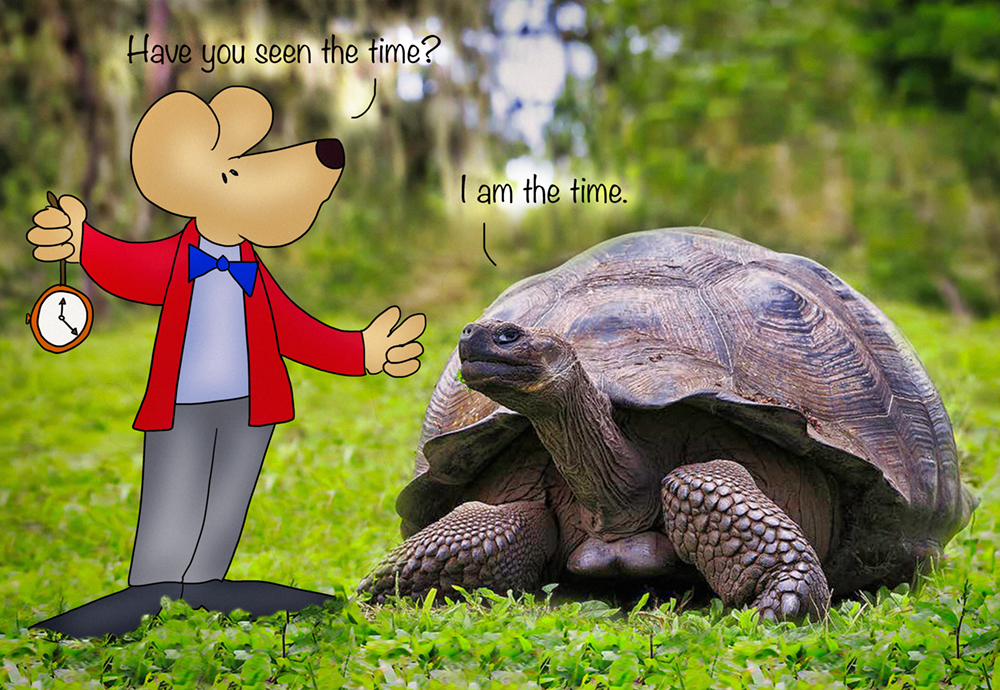Nothing lasts forever, is how the saying goes. I’m not sure about that one, but I won’t stand on the edge of a philosophical debate today. Instead, I’ll focus on the things here which are earthbound. As in, attached or restricted to the earth.
We humans don’t last forever. At least, our physical forms. The average lifespan of a person on earth is 69 years for males, and 71 for females, worldwide. Some people make it into the 100s. In fact, the oldest person ever (whose age has been independently verified) is Jeanne Calment (1875–1997) of France, who lived to the age of 122 years, 164 days. The oldest verified man ever is Jiroemon Kimura (1897–2013) of Japan, who lived to the age of 116 years, 54 days. That’s a lot of days. And nights.
Animals can last a long time too. But let’s start with bugs. The longest living insect is in the form of those pesky termites. Termites have little kingdoms, and they are ruled by a king and queen. The queen can live 50 dang years. Fifty! But what is worse, when she is at her prime, she can produce 25,000 eggs per day. Those turn into baby termites, which then grow up and sprout wood-eating teeth. And the walls come tumbling down. Long live the Queen. And she does. Fifty years.
On to fish. We have them right outside our front windows. Koi. Beautiful, peaceful, hungry koi. They are not especially well-equipped to defend themselves against predators. However, if they are kept in a safe environment, they last a long time. Some koi fishies have been reputed to live for over 200 years. But the “accepted” estimate is right around 50 years. We have had some here for 12 years, but then there was the great koi loss of 2019, and all of ours perished.
There’s more of the aged animal kingdom.
The oldest birds are Macaws at 100 years.
The oldest amphibians are Cave Salamanders, also at 100 years. I’ve never met one, but the next time I’m in a cave, I’ll give a shout out.
While we humans last a long time, we are not the mammal with the record. That goes to the bowhead whale, at 200 years old. I’m not quite sure how they keep track of their birthdays, especially since some swimming in the ocean today were born in the early 1800s. I wonder if they flipped a fin at Captain Ahab.
Now, some incredible ages.
Oldest reptile? Giant Tortoise at 300 years. (I love them.)
The shark record goes to the Greenland Shark at 400 years.
Longest Lived Mollusk is the Ocean Quahog, notching 500 years of sliminess.
Then of course, the last two are mind blowing.
Endoliths. The term “endoliths” refers to bacteria, fungi, amoebas or algae that live deep underground. Deep, like in the middle of rocks. Studies have shown “that the individuals of some of these colonies only undergo cell division once every hundred years, endowing them with lifespans in the 10,000-year range.” (Wikipedia Science).
And finally, there are certain jellyfish which are said to be immortal. They are called Turritopsis dohrnii, and they are a jellyfish type that has the ability to anti-age. It can revert back to its juvenile polyp stage after reaching sexual maturity. And as such, this makes it potentially immortal. This doesn’t protect them from predators, but they do have the ability to keep going on an on. Always.
If you have ever been stung by a jellyfish, and I have not, I understand that the pain is extremely intense. It could be due to the cranky jellyfish on the other end of it, who’s been around since Methuselah, floating around in the deep blue sea, just waiting for something fun to do.
As for the rest, we don’t know our time. It ticks and it tocks. But as Ben Franklin once said? A long life may not be good enough, but a good life is long enough. Tell that to your slimy 500 year old mollusk.
========
“Time you enjoy wasting is not wasted time.”
― Marthe Troly-Curtin
=========
“A man who dares to waste one hour of time has not discovered the value of life.”
― Charles Darwin
=========
“It is the time you have wasted for your rose that makes your rose so important.”
― Antoine de Saint-Exupéry, The Little Prince
========
“One man’s waste is another man’s value.”
— Polly Kronenberger
========
